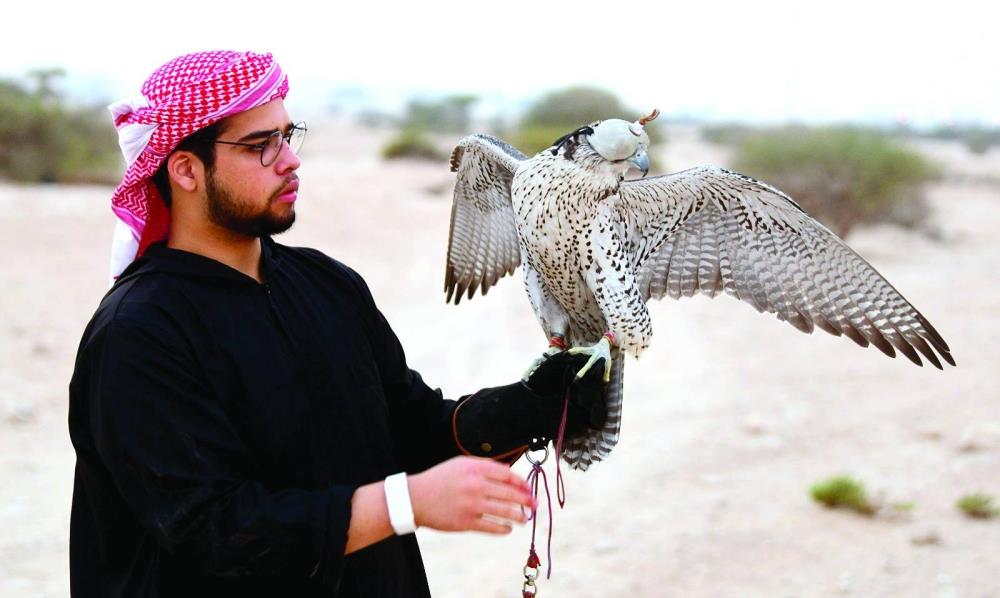
Modern Technology And Devices Help Enhance Traditional Falconry
Local Arabic daily Arrayah reported there is a remarkable enthusiasm among Qatari young people who view falconry as more than just an inherited tradition, as they see it as a school for learning patience, leadership, and the spirit of challenge, in addition to participating in local and international blade-->
Accordingly, falconry enthusiasts affirm that digital technologies have made falcon training more precise and efficient, especially in tracking birds over long flight distances.
Besides, they stressed the importance of medical and nutritional care for falcons, including providing vitamins and minerals to ensure their endurance over long flights, as well as monitoring weather conditions before going out to hunt. They noted that strong winds may cause a bird to get lost or injured.
Further, they pointed out that Qatari falconry has evolved from a traditional practice into a modern hobby that combines authenticity and technology, led by a passionate generation capable of using modern tools to serve a deep-rooted cultural heritage. This transformation reflects Qatar's vision of preserving its traditions while developing them in harmony with the spirit of the times.
Naif al-Otaibi, who learned falconry in his childhood, said that training these days has become much more advanced thanks to modern equipment.
He explains that he regularly visits specialised clinics, notably the Souq Waqif clinic, and uses drones to train different types falcons. He stresses that“the falcon is a trust in its owner's care,” requiring precise feeding and continuous blade-->
Meanwhile, Saheem al-Kuwari, an enthusiast of falcons, affirms that successful hunting depends on understanding weather conditions and using electronic tracking tools that make it easier to retrieve birds if they fly too far.
He adds that digitalisation has strengthened the spread of this hobby among the younger generation, as it has become common to see children owning and training their own falcons under family supervision.
Sultan al-Dosari said he trains his pure gyrfalcon daily using various methods, including drone-assisted luring or direct hunting of pigeons and seagulls. Al-Dosari, who has taken part in competitions such as Marmi, stressed that hunting with falcons is an integral part of the Qatari culture and that technology has helped develop the hobby without diminishing its traditional essence.
Jassim Saeed, who owned his first falcon at the age of six, said that training has become much easier these days thanks to modern apps that monitor a bird's health and activity. He stresses that the hobby is practiced with deep respect for the legacy of forefathers.
Ahmed al-Kuwari, who has been practicing falconry for five years, said that specialised exhibitions such as Suhail have raised awareness among young people and provided opportunities to learn about different falcon species and training methods. He points out that tracking technologies have enabled enthusiasts to train in wide-open areas both inside and outside the country, ensuring the birds' safety.

Legal Disclaimer:
MENAFN provides the
information “as is” without warranty of any kind. We do not accept
any responsibility or liability for the accuracy, content, images,
videos, licenses, completeness, legality, or reliability of the information
contained in this article. If you have any complaints or copyright
issues related to this article, kindly contact the provider above.


















Comments
No comment